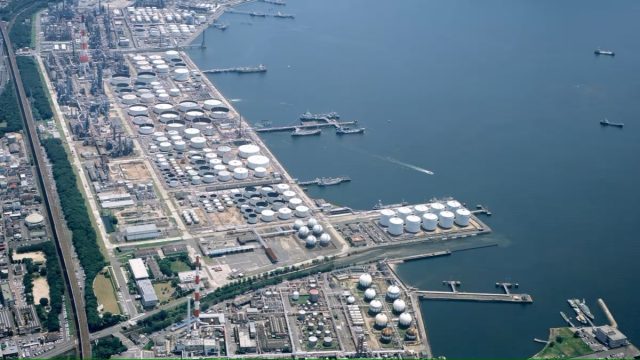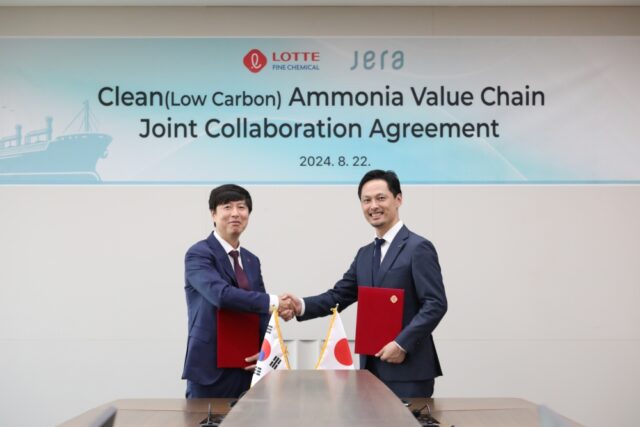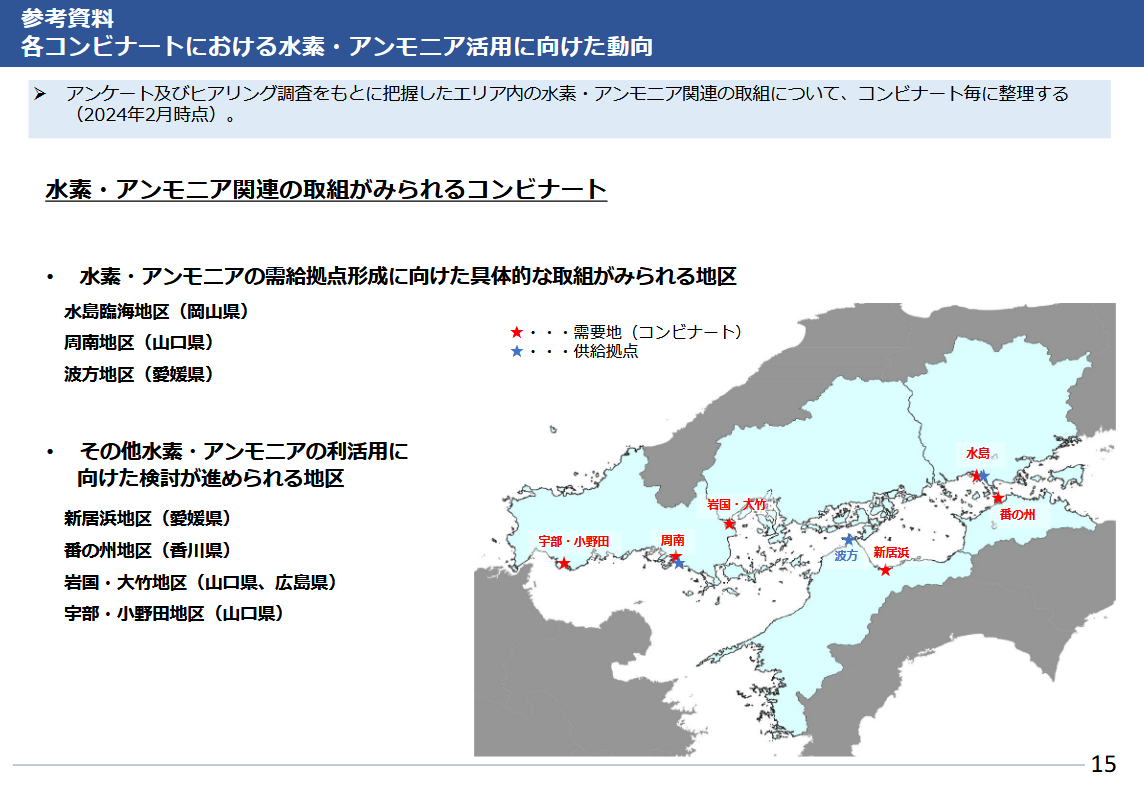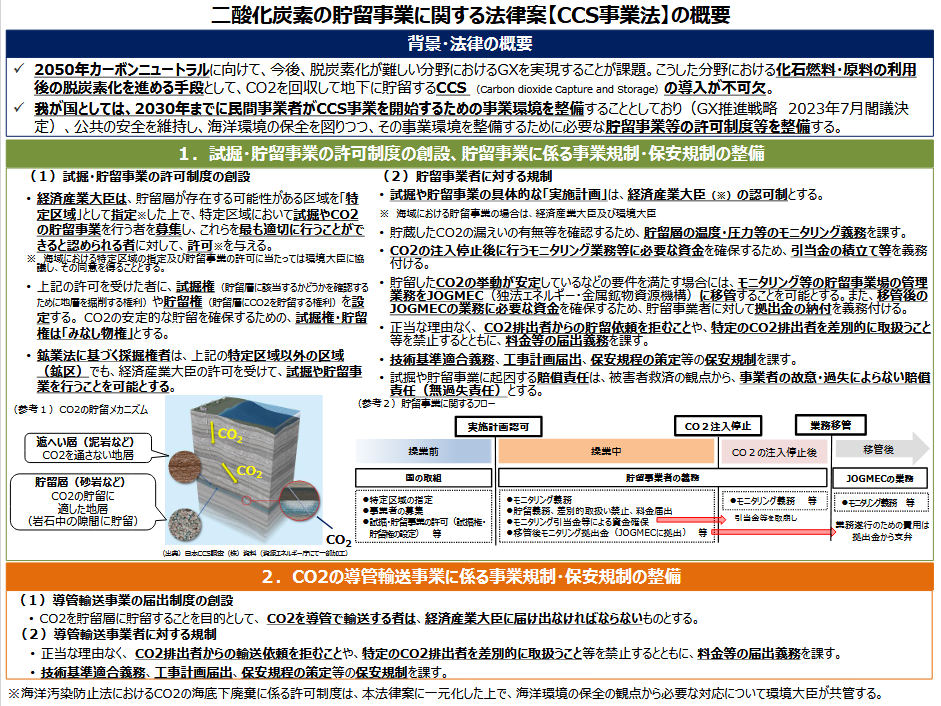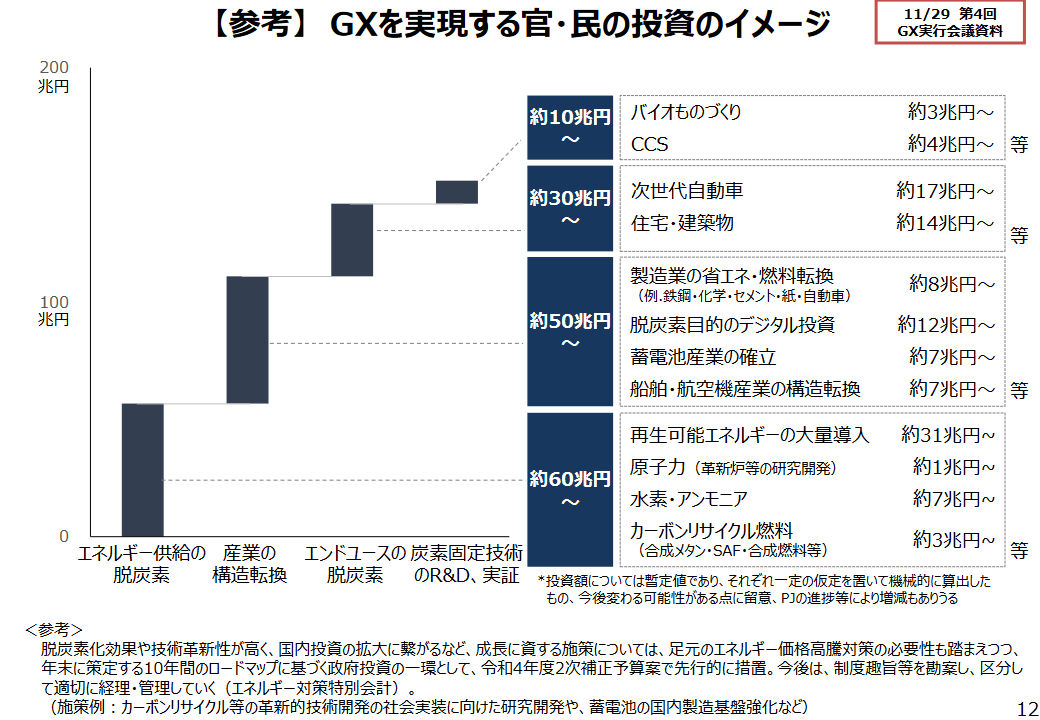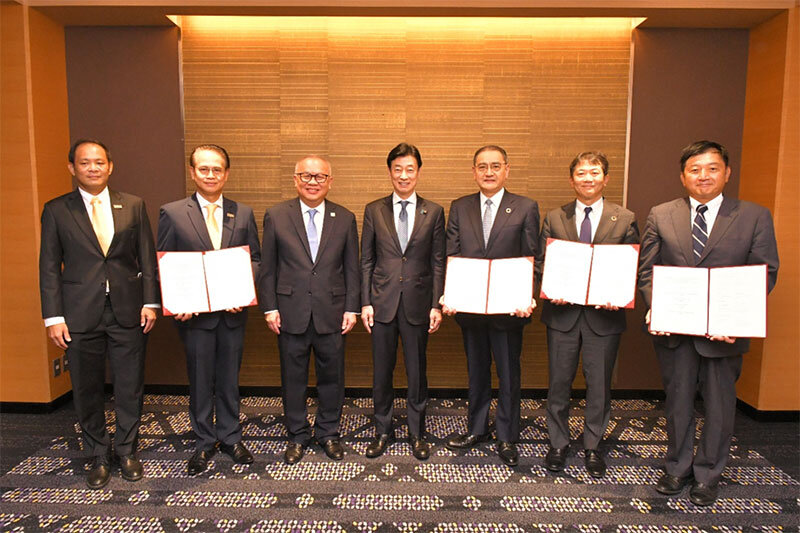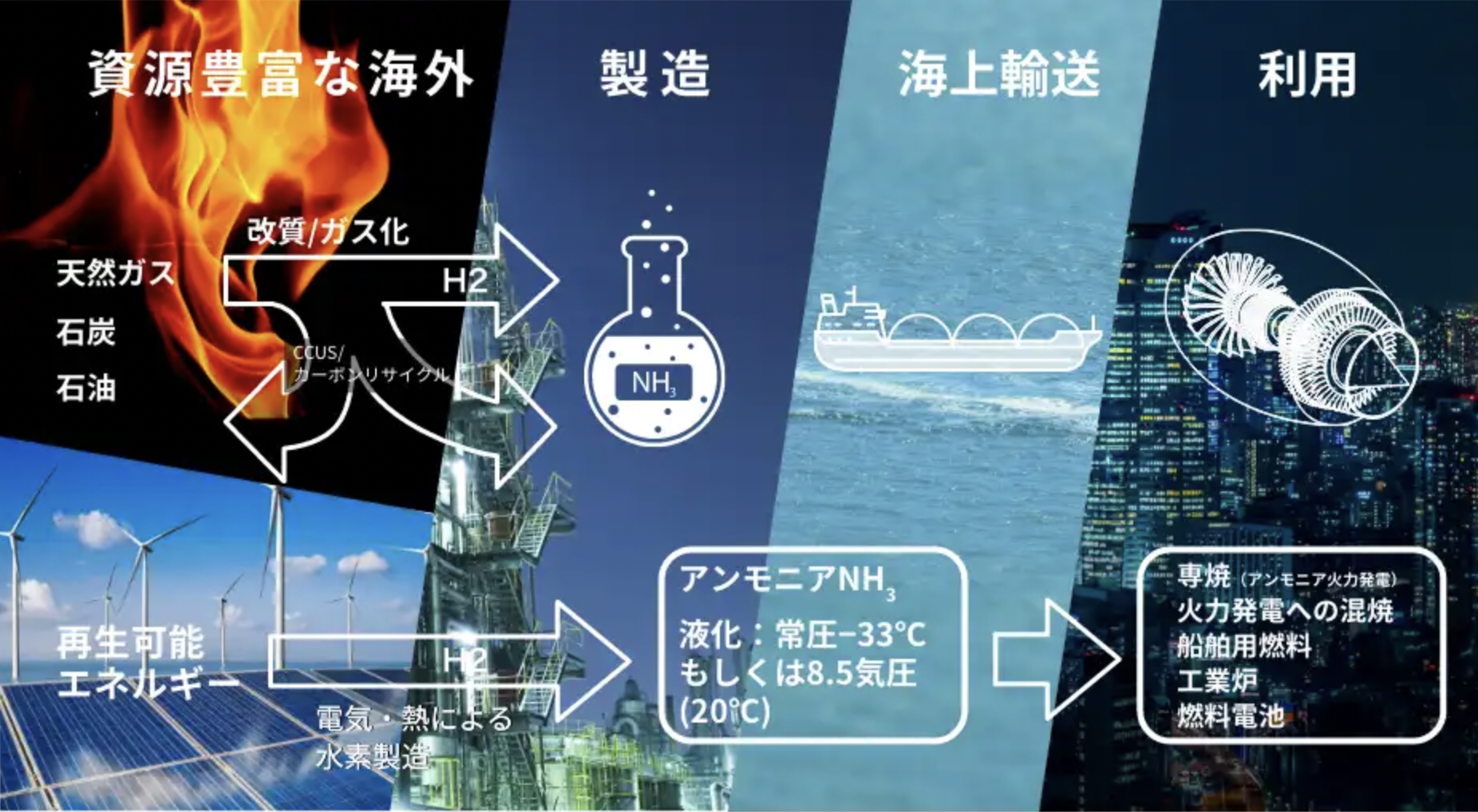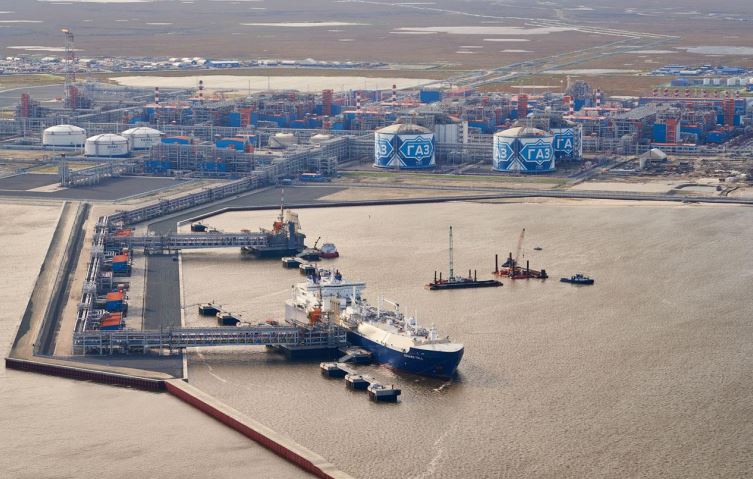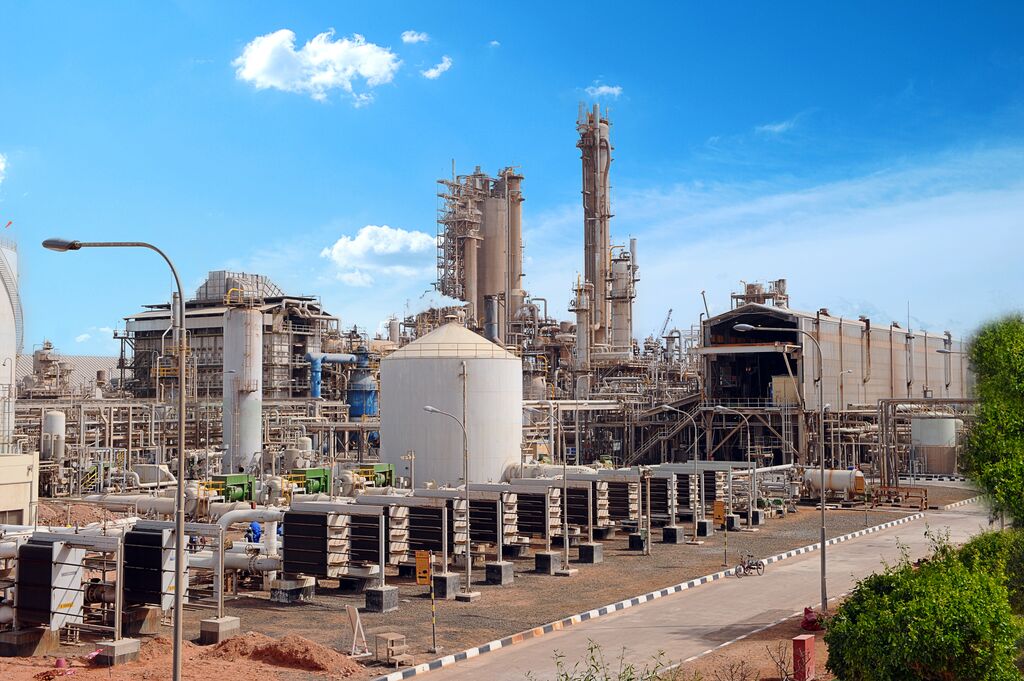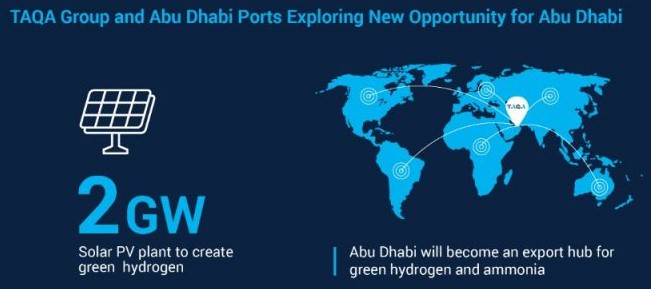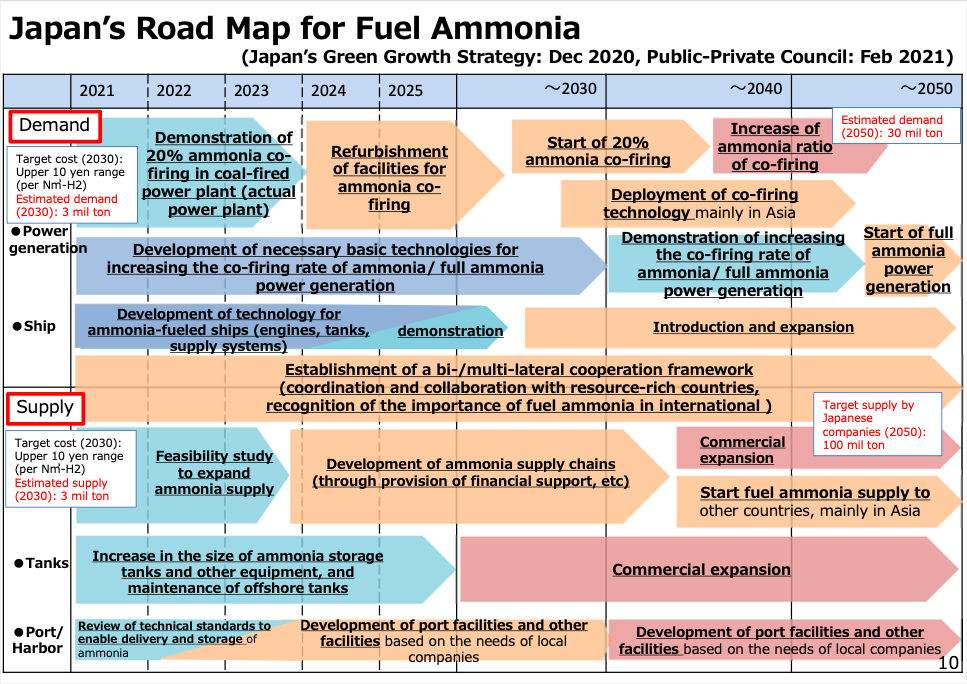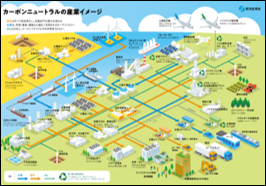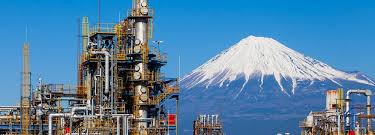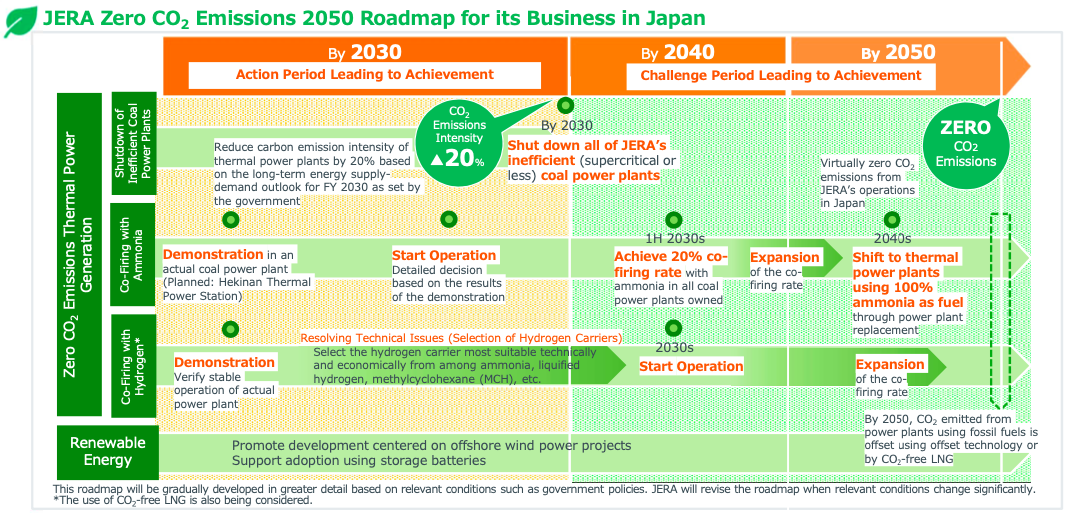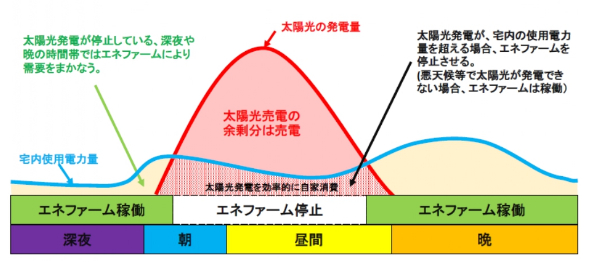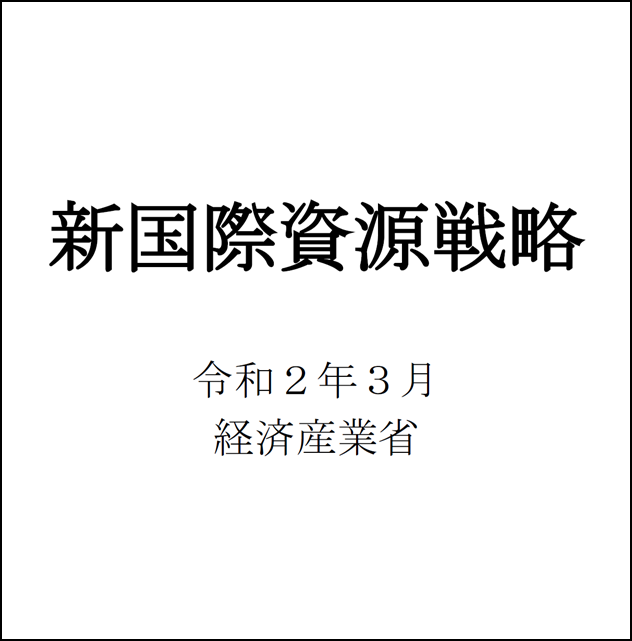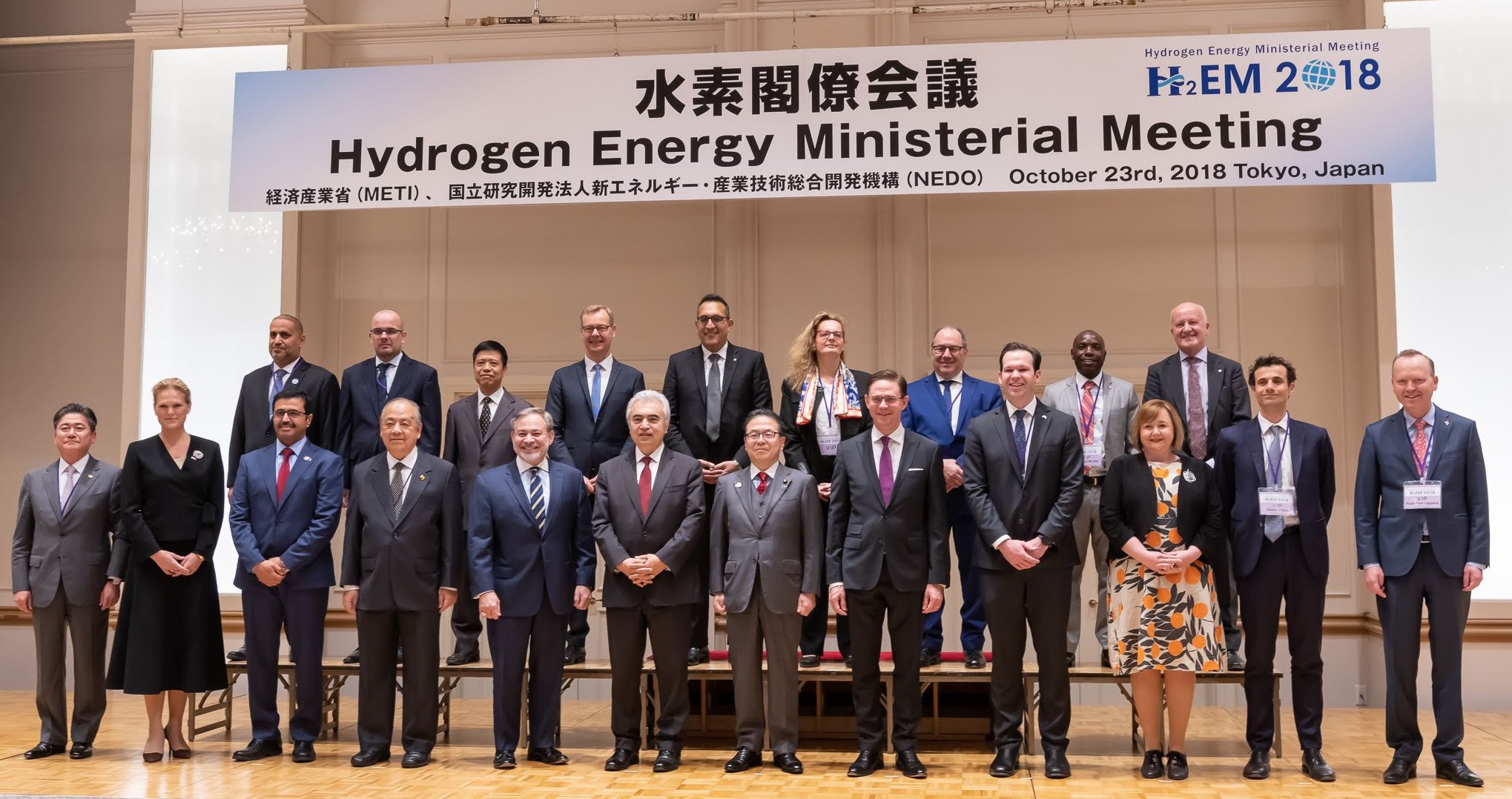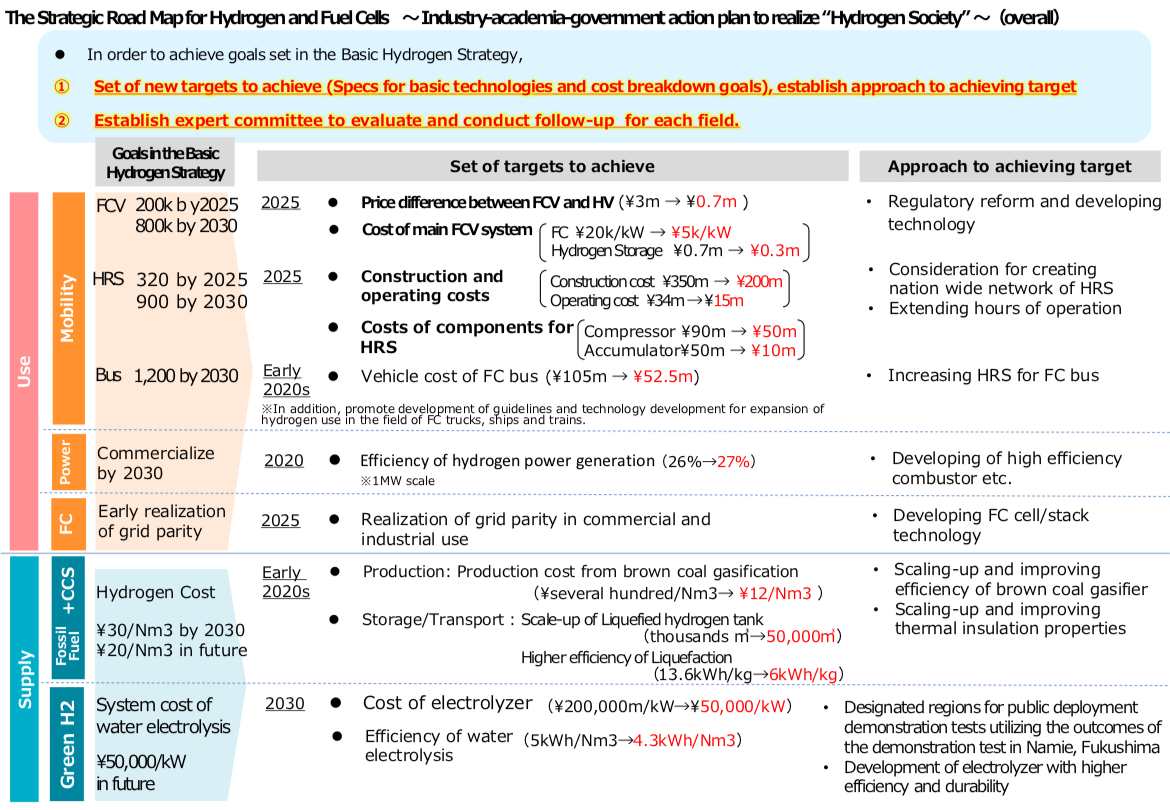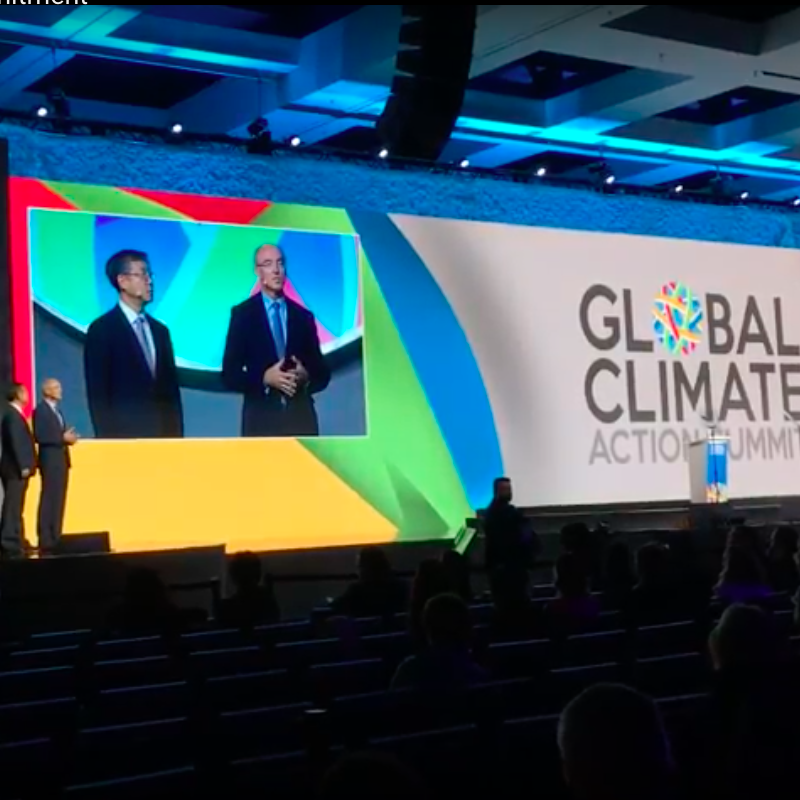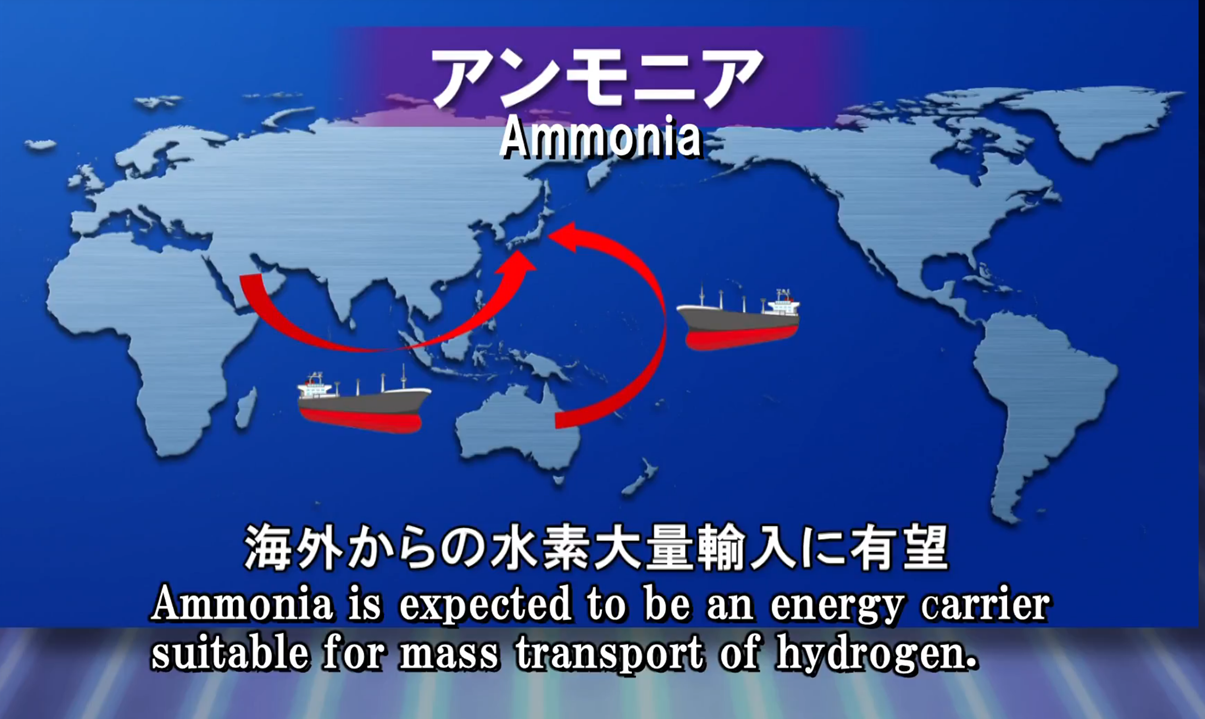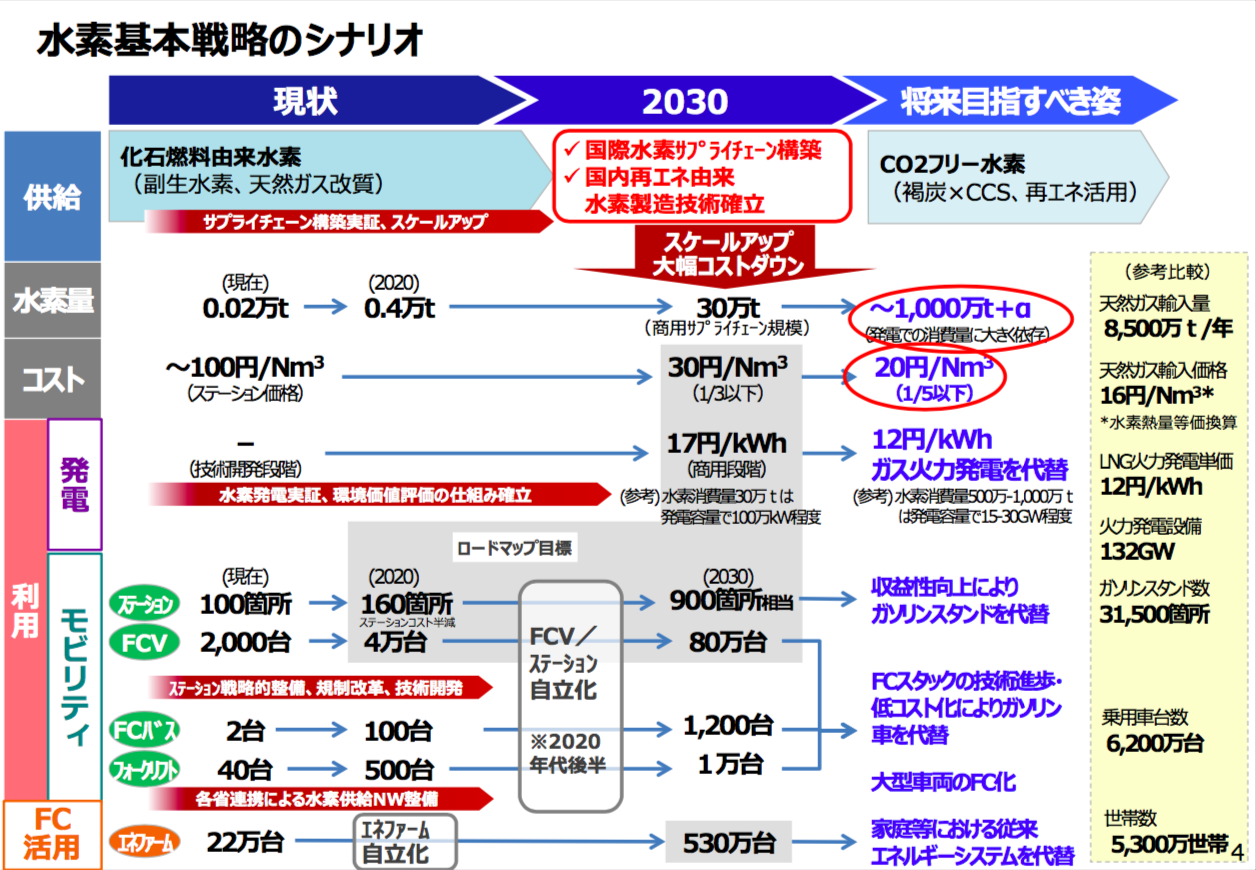The first two recipients in Japan’s long-term contracts for difference program for low-carbon hydrogen production have been announced. Resonac will produce hydrogen from used plastics and subsequently ammonia, with Japanese chemicals giant Nippon Shokubai to act as offtaker.
Content Related to Ministry of Economy, Trade and Industry (METI)
Article
India & Japan: establishing an ammonia trade corridor
Julian Atchison September 08, 2025
At the recent Japan-India Summit, the governments committed to cooperation on R&D, development of policy, regulations, market mechanisms, infrastructure, and the establishment of a hydrogen/ammonia trade corridor between India and Japan.
Article
ITOCHU: newbuild ammonia bunkering vessel development and demonstration in Singapore
Geofrey Njovu August 06, 2025
ITOCHU has signed a world-first contract with Sasaki Shipbuilding for a 5000 m3 ammonia-fueled, ammonia bunkering vessel. The vessel is set to be delivered by September 2027.
Article
The view from Japan: 2025 shaping as a pivotal year for ammonia energy
Julian Atchison February 26, 2025
In 2025, the pieces are rapidly assembling to enable and accelerate imports of ammonia energy to Japan. This year, government agency METI is due to announce two lots of key funding, including contracts for difference subsidies and development of import infrastructure. Power generation technologies will be commercialised within the next few years, and more maritime players are joining the push to deploy ammonia fuel in Japanese ships.
Article
JERA and Lotte: ammonia fuel value chain between Japan and Korea
Geofrey Njovu September 19, 2024
Ammonia energy giants JERA and Lotte will develop a low-carbon ammonia value chain between Japan and Korea, working alongside the governments of both countries.
Article
Transitioning to ammonia & hydrogen power in Chugoku, Japan
Geofrey Njovu June 11, 2024
The Ministry of Economy, Trade and Industry has published a regional strategy to decarbonise the power generation ecosystem in the Chugoku region, Japan. The strategy predicts the region will require more than 3 million tons of fuel ammonia by 2030, and highlights several ongoing industrial initiatives to demonstrate the use of ammonia fuel & establish local import infrastructure.
Article
Japan's Hydrogen Society Promotion Act
Julian Atchison February 28, 2024
Two new Bills make up a “hydrogen promotion” package submitted to the Japanese parliament. The “Hydrogen Society Promotion Bill”, sets up a framework for awarding subsidies under the GX bonds scheme (a contracts-for-difference program), while the “CCS Business Bill” sets out permitting and monitoring requirements for domestic CCS projects in Japan.
Article
GX bonds: new Japanese green subsidy program unveiled
Julian Atchison May 17, 2023
Key elements of Japan’s Green Transformation (GX) push have been unveiled, including policy support for the implementation of ammonia energy solutions, and a $1 trillion total public-private investment package. A subsidy scheme to address the price difference between hydrogen, ammonia and fossil fuels is included, with a nominal price tag of $36 billion, running into the 2030s.
Article
Establishing a renewable ammonia supply chain from Thailand
Julian Atchison March 09, 2023
Mitsui OSK Lines, Mitsubishi, Chiyoda and the Electricity Generation Authority of Thailand will work together to build a clean hydrogen & ammonia value chain, with production based on renewable energy generation in southern Thailand. The MoU was signed on the sidelines of the official launch of the Asian Zero Emissions Community: a new region-wide initiative to drive the energy transition in Asia.
Article
JERA targets 50% ammonia-coal co-firing by 2030
Julian Atchison January 21, 2022
Japanese government funding via NEDO will support four critical ammonia energy projects, including JERA's new plan to demonstrate 50% ammonia-coal co-firing by 2030. Other projects include improved catalysts for ammonia production, low-temperature and low-pressure synthesis pathways, and developing 100% ammonia-fed boilers and gas turbines. In addition, a new cooperation agreement between ASEAN countries will see Japan support other members to adopt their ammonia energy solutions, particularly coal co-firing.
Article
The first Russian-German low-carbon ammonia supply chain
Julian Atchison January 12, 2022
Uniper and Novatek have signed a long-term supply agreement to transport up to 1.2 million tonnes of blue ammonia annually from Novatek's to-be-built blue ammonia plant in Siberia to Uniper's planned "climate-friendly" hydrogen hub in Wilhelmshaven.
Article
thyssenkrupp to provide technology for UAE's first green ammonia plant
Julian Atchison August 11, 2021
As reported at Ammonia Energy in May, Abu Dhabi Ports and Helios Industry are developing the UAE's first renewable ammonia plant. The 200,000 tonnes per year, green ammonia facility in Abu Dhabi will be powered by a 800 MW solar farm, with Helios investing $1 billion in the plant's construction. The project has a new partner, with thyssenkrupp signing an agreement to perform a technical feasibility study on a plant based on thyssenkrupp's electrolysis technology.
Article
Itochu to buy and produce blue ammonia
Julian Atchison August 05, 2021
Itochu will purchase blue ammonia from Abu Dhabi, under a new agreement with OCI NV and ADNOC. Itochu will also team up with Petronas Canada (subsidiary of the Malaysian state energy company) will team up for a feasibility study into a 1 million tonne per year blue ammonia production plant in Alberta.
Article
Building an ammonia supply chain in the UAE: bunkering, blue, and 2 GW of green ammonia
Julian Atchison July 13, 2021
ADNOC announced this week that it will embark on a joint study with three Japanese organisations – INPEX, JERA, and the government agency JOGMEC – to explore the commercial potential of blue ammonia production in the UAE. Also this week, TAQA Group and Abu Dhabi Ports announced plans for a green ammonia export facility to be based in the Khalifa Industrial Zone Abu Dhabi (KIZAD). A 2 GW solar power plant will power electrolyzers that will feed green hydrogen into the ammonia production facility, with a pipeline to connect the setup to storage tanks at nearby Khalifa Port.
Article
Japan's Road Map for Fuel Ammonia
Trevor Brown February 25, 2021
This month, the Japanese Ministry for Economy, Trade, and Industry (METI) began promoting an updated Road Map for Fuel Ammonia, focused on the use of ammonia in thermal power plants and as a shipping fuel. By 2030, Japan expects to import 3 million tons of clean ammonia, with demand rising to 30 million tons by 2050. To secure these volumes, Japanese companies are now making investments up and down the supply chain. These are ambitious numbers, matching Japan’s recent commitment to reach net-zero emissions, but still they miss the big picture. The broader economic opportunity arrives when Japanese companies export their fuel ammonia technologies, decarbonizing coal-fired power plants across Asia, and then supply the fuel to these newly sustainable shipping and electricity sectors. By 2050, the METI Road Map expects Japanese trading companies to supply the wider region with 100 million tons per year of clean ammonia.
Article
Japan, UAE to Cooperate on Ammonia Energy
Stephen H. Crolius January 28, 2021
Japan has forged an agreement with the United Arab Emirates under which the two countries will “accelerate the bilateral cooperation in the fields of fuel ammonia and carbon recycling.”
Article
Ammonia Featured in Japan's New Green Growth Strategy
Stephen H. Crolius January 14, 2021
Last month Japan’s Ministry of Economy, Trade and Industry (METI) unveiled a policy platform that will help the country realize its goal of achieving carbon-neutrality by 2050. According to a December 25, 2020 METI press release, the “Green Growth Strategy towards 2050 Carbon Neutrality” sets goals for 14 “priority fields” and “formulates action plans covering comprehensive policies in areas such as budgets, taxes, regulation reforms and standardization, and international collaboration.” “Ammonia fuel” and hydrogen are each the focus of a distinct priority field.
Article
METI Forms Ammonia Energy Council
Stephen H. Crolius November 05, 2020
Last week, Japan’s Ministry of Energy, Trade, and Industry (METI) announced the formation of a council to work on the implementation of ammonia as an energy commodity. The announcement came on the same day as a speech by Prime Minister Yoshihide Suga in which he established 2050 as the date certain for Japan to achieve carbon-neutrality. That was Monday October 26, 2020. The council held its first meeting on Tuesday October 27. The Council consists of four entities from the public sector and ten from the private sector. Members include companies that have previously been identified with the development of ammonia energy systems, including EPC firm JGC, capital goods manufacturer IHI, electric utility JERA, and shipping company NYK Line. The membership also reflects what appears to be the group’s central mission: positioning Japan as ammonia energy’s global leader via the dissemination of technology and the development of supply chains.
Article
Japan's Electricity Sector: An Early Market for Low-Carbon Ammonia
Stephen H. Crolius October 29, 2020
This week, Japan’s new Prime Minister Yoshihide Suga announced that by 2050 the country would drive its greenhouse gas emissions to zero and achieve carbon-neutrality. Earlier in the month, the Japanese electric utility JERA announced its intention of “achieving zero CO2 emissions by 2050.” Its first step toward this goal was its 'JERA Zero CO2 Emissions 2050 Roadmap for its Business in Japan.'
Article
New Twists for Japanese Ene-Farms
Stephen H. Crolius July 09, 2020
Over the last two months, Japan’s Ministry of Economy, Trade and Industry (METI) has selected at least four natural gas utilities to participate in “verification projects” under its Building Virtual Power Plant Using Customer-Side Energy Resources program. Participating utilities so far include Osaka Gas, Tokyo Gas, Seibu Gas, and J Power. The program is intended to facilitate the development of renewable electricity in Japan and is shining a new light on the deployment of fuel cells in the country's built environment.
Article
Ammonia Included in Japan's International Resource Strategy
Stephen H. Crolius April 09, 2020
Japan’s Ministry of Economy, Trade and Industry has singled out ammonia for the role it can play in the country’s creation of a "carbon-free society." The news was embedded in METI’s New International Resource Strategy which was released on March 30. In the report's framing, ammonia is cited for its association with “the concept of importing renewable energy produced in other countries.” In a departure from the practice found in most reports on the energy transition, the ammonia discussion stands alone and not as one item on a roster of potential renewable energy vectors.
Article
Government Investments in Hydrogen: How Does Your Country Compare?
Stephen H. Crolius October 11, 2019
On September 3, the British renewable-energy news portal reNEWS.BIZ ran a story with an intriguing headline: “Scotland launches £3bn green project portfolio.” At first glance, that number (which equates to USD $3.7 billion) looks out of scale with Scotland’s relatively tiny population of 5.5 million. Close reading reveals that the £3 billion is not the amount that will be invested by the Scottish government, but rather the value of the “investment portfolio” of green businesses the program is intended to galvanize over the next three years. But still one wonders, how does £3 billion stack up against other national programs aimed at supporting the sustainability transition?
Article
Japan, U.S., E.U. Agree to Cooperate on Hydrogen
Stephen H. Crolius August 01, 2019
On June 18, Japan, the United States, and the European Union released a joint statement on “future cooperation in hydrogen and fuel cell technologies.” Represented, respectively, by the Ministry of Energy, Trade, and Industry (METI), the Department of Energy (DoE), and the Directorate-General for Energy (ENER), the jurisdictions pledged “to accelerate the development of sustainable hydrogen and fuel cell technologies in the world.” A central point of agreement in the statement is “the importance of reducing the cost of hydrogen.”
Article
METI Releases Major Revision to Hydrogen Roadmap
Stephen H. Crolius April 10, 2019
Japan’s Ministry of Economy, Trade and Industry (METI) announced on March 12 that it had released a “major revision” to the country’s Hydrogen and Fuel Cell Strategy Roadmap. The Roadmap was first formulated in 2014 to “secure the goals set forth in the Basic Hydrogen Strategy and the 5th Basic Energy Plan for the realization of a hydrogen society.” The Roadmap’s last revision in 2016 predates new editions of the foundation documents that were released in December 2017 and July 2018, respectively.
Article
Targets, Limits, Pledges, Bans: Enforcing the Transition to Sustainable Energy
Trevor Brown October 18, 2018
In the last 12 months ... California passed a law mandating 100% carbon-free electricity by 2045; then its governor announced that the state's entire energy system - not just its electricity - would be carbon-neutral by 2045. The Hydrogen Council announced its "goal of decarbonizing 100% of hydrogen fuel used in transport by 2030." The International Maritime Organization set targets for the global shipping sector to “reduce the total annual GHG emissions by at least 50% by 2050,” and completely “phase them out, as soon as possible in this century,” and these targets were swiftly endorsed by the International Chamber of Shipping. Regulators and self-regulating organizations around the world are enforcing systemic decarbonization and accelerating the transition to a hydrogen economy.
Article
Japan, Saudi Arabia Explore Trade in Hydrogen, Ammonia
Stephen H. Crolius February 15, 2018
Japan and Saudi Arabia are together exploring the possibility of extracting hydrogen from Saudi crude oil so that it can be transported to Japan in the form of ammonia. According to a synopsis of the planned effort, “one option for Japan’s material contribution to reducing greenhouse gas emissions [would be] a supply chain for carbon-free hydrogen and ammonia produced through CCS from Saudi Arabian fossil fuels.” The synopsis emerged from a September 2017 workshop sponsored by Saudi Aramco and the Institute of Energy Economics, Japan (IEEJ).
Article
Ammonia Positioned for Key Role in Japan's New Hydrogen Strategy
Stephen H. Crolius January 11, 2018
The Japanese government has approved an updated hydrogen strategy which appears to give ammonia the inside track in the race against liquid hydrogen (LH2) and liquid organic hydride (LOH) energy carrier systems. The announcement was made on December 26, 2017, by the Agency of Natural Resources and Energy (ANRE), the lead agency on energy policy within the Ministry of Energy, Trade, and Industry (METI). Perhaps the most important indicator of ammonia’s positioning as the lead energy carrier can be seen in the development timelines that are assigned to each energy carrier. The Strategy calls for “CO2-free ammonia” to come into use “by the mid-2020s.”
Article
Japan's Fourth Strategic Energy Plan
Stephen H. Crolius September 19, 2016
The Cabinet of the Government of Japan adopted the country’s Fourth Strategic Energy Plan in April 2014. The Plan includes a Strategy for Hydrogen & Fuel Cells which is being executed by the Ministry of Economy, Trade and Industry (METI). The accompanying H2/FC Road Map includes an investigation of three materials that can carry the energy embodied in molecular hydrogen: liquid hydrogen, organic hydrides such as methylcyclohexane, and ammonia.



